David Wagoner
Lost
A person is lost, and in panic. A calm voice says strangely comforting things.
We’re pleased to offer David Wagoner’s poem, and invite you to connect with Poetry Unbound throughout this season.
Pre-order the forthcoming book Poetry Unbound: 50 Poems to Open Your World and join us in our new conversational space on Substack.
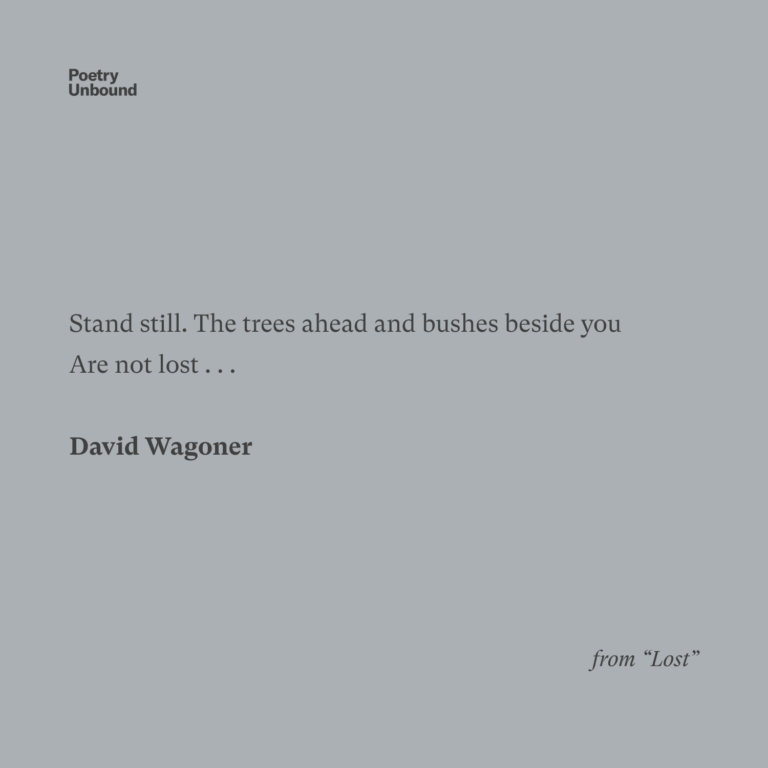
Guest
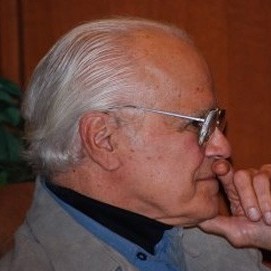
David Wagoner David Wagoner is the author of 24 poetry collections and 10 novels. He is the recipient of two Pushcart Prizes (1977 and 1983) and the Ruth Lilly Poetry Prize (1991). Wagoner’s final collection of poetry, After the Point of No Return, was published by Copper Canyon Press in 2012.
Transcript
Pádraig Ó Tuama: Friends, thanks very much for listening to Poetry Unbound, whether you’re new or you’ve listened to them all — your attention makes everything worthwhile. And I’ve got some news: I’ve written a book, Poetry Unbound: 50 Poems to Open Your World. There’s 50 poems, each with a fresh essay written by me. I’d love if you pre-order it, or pre-order a few, and join up to our free interactive newsletter. Links to everything at poetryunbound.org.
[music: “Praise the Rain” by Gautam Srikishan]
My name is Pádraig Ó Tuama, and one time, I was walking through New York City with a new friend. And we were talking about poetry, both poets, and I said, Oh, there’s this poem by David Wagoner that I love. And she looked at me, and at the same time, we both said, “Lost.” And then she thumped me with her umbrella, because, she said, How did you know this is my favorite poem? And I didn’t. I was just saying it’s one of my favorite poems. And we recited this poem to each other, standing there. It was raining, people were going by, it was dark, there were lights, there was noise, and reciting David Wagoner’s poem “Lost” to each other was a way of finding friendship, as well as finding location in the middle of a city filled with so much movement.
[music: “Praise the Rain” by Gautam Srikishan]
“Lost” by David Wagoner:
“Stand still. The trees ahead and bushes beside you
Are not lost. Wherever you are is called Here,
And you must treat it as a powerful stranger,
Must ask permission to know it and be known.
The forest breathes. Listen. It answers,
I have made this place around you.
If you leave it, you may come back again, saying Here.
No two trees are the same to Raven.
No two branches are the same to Wren.
If what a tree or a bush does is lost on you,
You are surely lost. Stand still. The forest knows
Where you are. You must let it find you.”
[music: “The Willows” by Gautam Srikishan]
The first time I read this poem, the advice went into me in a way that made me look at the world differently, totally differently. “Wherever you are is called Here, / And you must treat it as a powerful stranger.” What amazing advice — it’s not saying, oh, and it’s lovely, or, oh, and it’s diabolical. “A powerful stranger.”
I’ve used this poem over years, with different groups that I’ve worked with, and said to them before we read it, What advice would you give to yourself when you’re lost? And some people know themselves enough to say, Well, calm down, or, Retrace your steps, or, Don’t panic, or, Don’t wait too long before you ask for help.
This poem is written in the imperative, the tense that you use in grammar to give an order: sit down, stand up, go out, come in. The first line of the poem is just two words: “Stand still,” it’s written from a voice that isn’t sentimental. It seems to be caring, because it’s caring about whoever is lost — the “me,” I suppose; the person being addressed.
But there’s a sense that the person is lost, and perhaps not only lost, but then distressed that they’re lost. And this poem has a voice in it that’s calling your attention, to say, Just because you’re lost, it doesn’t mean that you have to be distressed. And even if you are lost, there’s something to be found there.
The only time we hear a verb conjugated in the first person in this poem is when the poem is allowing the forest to speak. “The forest breathes. / Listen. It answers, / I have made this place around you. / If you leave it, you may come back again, saying Here.” What an amazing thing, “I have made this place around you.”
I don’t think that I’d ever thought about a forest speaking and that a forest isn’t lost to itself. The metaphor of lostness the whole way throughout this poem is speaking to so many different circumstances.
Something happens in us when we’re lost. We go into old muscle memories, sometimes funny, sometimes calm, sometimes distressed, sometimes making the concern about being lost even worse. And I think this is so interesting for all of us to reflect on: what am I like when I’m lost?
[music: “Catching Water” by Gautam Srikishan]
So the poem makes use of a great device, which is repetition. The word “you” is repeated 11 times, but there’s other things that are repeated, as well. “Stand still,” for instance, repeated twice, and then, “No two are the same to” is repeated, almost like a calming mantra. “No two trees are the same to Raven. / No two branches are the same to Wren.” And in this way, one of the things that the poem is doing is setting up a certain kind of pattern and a certain kind of recognizability to the ear, almost like a music, and, as well, to the eye as you’re reading it. And this, too, is providing a map — a map to say, Look at what’s here. Look at all of these things in relation to each other. The raven and the wren are not lost, and you don’t need to be, either, because look at the pattern that’s here. And recognize that it might be your distress that’s making your lostness feel worse. It could perhaps be that if you’re able to gather yourself, that you can find a certain kind of strength. The word “lost” is repeated throughout this, as well.
Over and over again, this poem does that, these little unfolding codes that are there, waiting to be seen, if you can only see it and if you can only put aside whatever feeling you have in association with being lost, and begin to pay attention. And if you can’t do that, if you can’t pay attention to those patterns, then, this poem is saying, well, then, you are surely lost.
And so observation, paying attention, noticing, being where you are and finding a way to not let your feeling about your feeling be the only thing you’re paying attention to — seeing what is at home in the place where you call lost — that might be the thing that realizes that you are not lost and that there is a way forward.
[music: “Memoriam” by Gautam Srikishan]
“Lost” can mean so many things. Like, I lost my data on my computer. Or you can talk about losing your innocence, or you can say, It’s lost to me, if somebody says something that you don’t comprehend or don’t want to comprehend. You can say, I lost the plot. Certainly, we say that here, when we’re talking about maybe losing control. Amazing ways within which this simple word, “lost,” can mean so many different things.
And how is it that the word “lost” crops up in your life? Is it that you want to be lost, actually? Somebody once said to me that in relation to religion that I come across like I’m totally lost. And I took it as a deep compliment. I was delighted, because I have no interest in being found. “I once was lost, but now I’m found” is a phrase that echoes throughout so much hymnody in the Christianities of the world. And I sometimes have deep suspicion of the idea of being found, because I am interested, perhaps artistically, in the idea about what happens when you know you’re not found. What do you begin to observe?
One of the things that struck me over the years of using this poem when I do group work is, in the midst of all the instructions, so many people take different instructions for themselves. They hear what they most need to hear in the lines of the poem. I’m so curious as to what people hear in it, what you take away. Where, today, where in this season of your life, where, or wherever you are, is it you find this poem speaking to you? Is it in the “Stand still”? Is it in the “No two trees are the same to Raven”? Is it in the single-word sentence, “Listen”? What is it? I’m so interested to know where it is that this magnificent poem strikes you.
[music: “The Willows” by Gautam Srikishan]
“Lost” by David Wagoner:
“Stand still. The trees ahead and bushes beside you
Are not lost. Wherever you are is called Here,
And you must treat it as a powerful stranger,
Must ask permission to know it and be known.
The forest breathes. Listen. It answers,
I have made this place around you.
If you leave it, you may come back again, saying Here.
No two trees are the same to Raven.
No two branches are the same to Wren.
If what a tree or a bush does is lost on you,
You are surely lost. Stand still. The forest knows
Where you are. You must let it find you.”
[music: “Praise the Rain” by Gautam Srikishan]
Chris Heagle: “Lost” comes from David Wagoner’s book Collected Poems, 1956–1976. Thank you to University of Illinois Press, who gave us permission to use David’s poem. Read it on our website at onbeing.org.
[music: “Praise the Rain” by Gautam Srikishan]
Poetry Unbound is: Gautam Srikishan, Eddie Gonzalez, Lilian Vo, Lucas Johnson, Amy Chatelaine, Kayla Edwards, and me, Chris Heagle.
Our music is composed and provided by Gautam Srikishan and Blue Dot Sessions.
This podcast is produced by On Being Studios, which is located on Dakota land. Open your world to poetry with us by subscribing to our Substack newsletter at poetryunbound.org. You may also enjoy our other podcast On Being with Krista Tippett, or our newsletter, The Pause. Visit us at onbeing.org to find out more.
Books & Music
Recommended Reading
The On Being Project is an affiliate partner of Bookshop.org and Amazon.com. Any earnings we receive through these affiliate partnerships go into directly supporting The On Being Project.






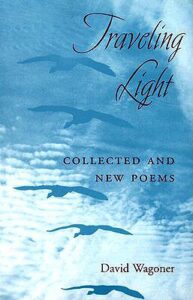
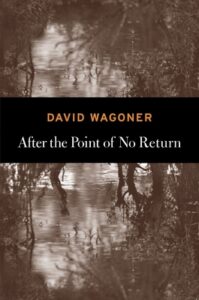
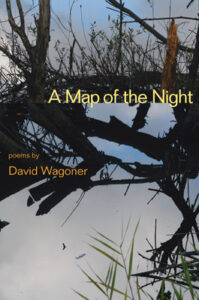
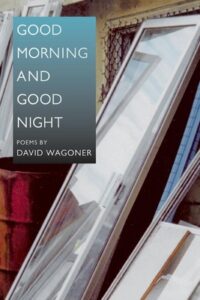

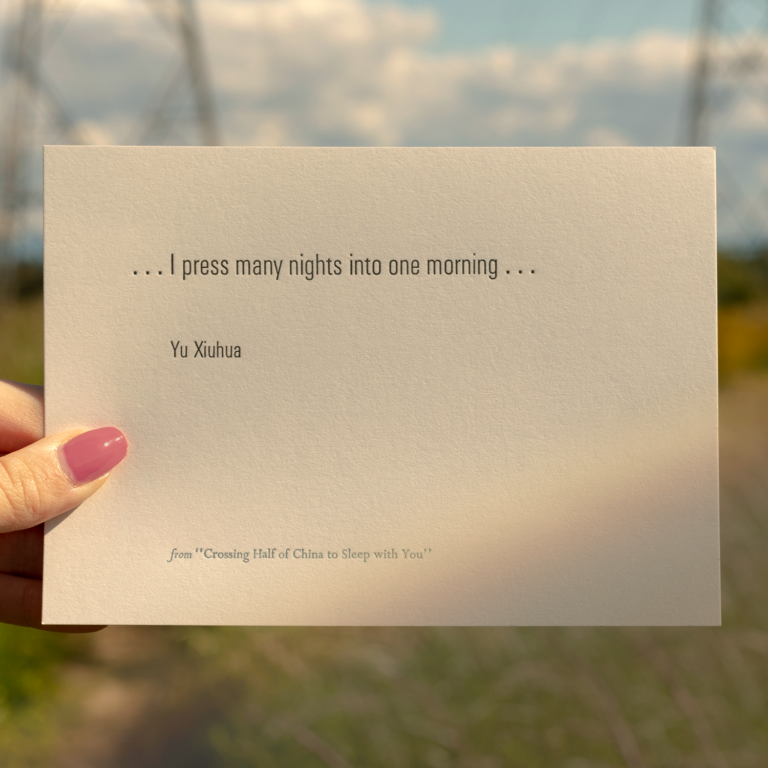
Reflections